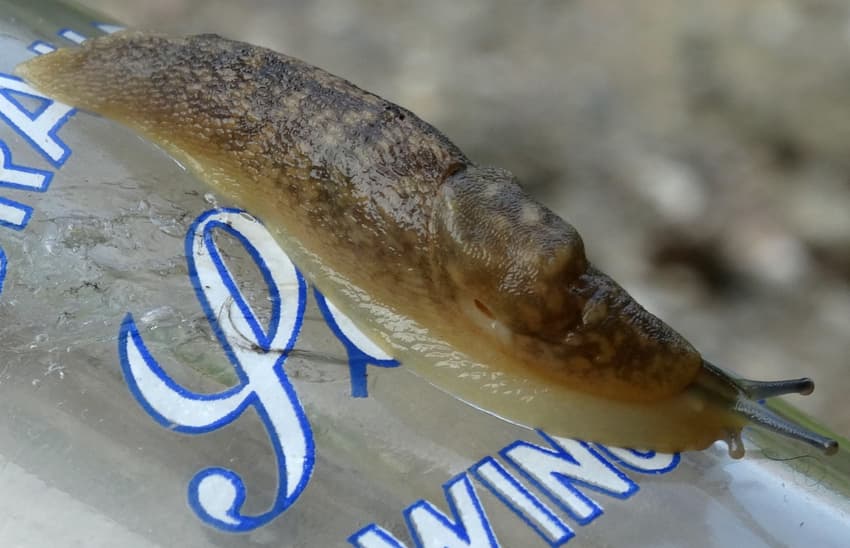'Beer slug' thought extinct reappears in Hamburg after 80 years

A "beer slug" thought to be likely extinct in Hamburg for years has finally reemerged - and in the city’s infamous red light district, the Reeperbahn, no less.
For eight decades, there was no trace in Hamburg of the Bierschnegel - literally beer garden slug. The creature, also known as cellar slug in English, was last seen in 1935 in the harbour city, according to the University of Hamburg.
Since then, the beer slug had been placed on Hamburg’s “red list” of endangered species and classified as either extinct or lost.
But on Tuesday the University of Hamburg announced with excitement that researchers had confirmed the beer slug had been spotted once again in the red light St. Pauli district.
The first recent sighting of the slug was in 2015 in the courtyard area of a hostel off of the Reeperbahn street in St. Pauli. One of the slugs was seen again in the area of the city’s Zoological Museum. Outside of an appearance in Berlin in 2015, Hamburg is the only German big city where the slug has been identified in recent years.
Historically, the beer slug was a regular feature of Hamburg city centre life, often slinking around the moist basements where beer was brewed, giving the slug its name.
But with building renovations and the destruction of the beer slug’s suitable habitats, the mollusk was seen less and less in Hamburg, before disappearing completely.
“Furthermore there was the problem of detecting [the slug] because the beer slug likes to hide and rarely comes out before 10pm,” wrote lead researcher Dr. Marco T. Neiber in a statement.
Neiber believes that frost-sensitive species could emerge as a “winner of climate change” due to the possibility that the more favourable conditions, like milder winters, would lead to fewer weather-related losses within their population.
“Nevertheless, such a species for Germany as a whole should still be classified as highly endangered because its suitable habitat is becoming scarce in populated areas through renovations.”
Comments
See Also
For eight decades, there was no trace in Hamburg of the Bierschnegel - literally beer garden slug. The creature, also known as cellar slug in English, was last seen in 1935 in the harbour city, according to the University of Hamburg.
Since then, the beer slug had been placed on Hamburg’s “red list” of endangered species and classified as either extinct or lost.
But on Tuesday the University of Hamburg announced with excitement that researchers had confirmed the beer slug had been spotted once again in the red light St. Pauli district.
The first recent sighting of the slug was in 2015 in the courtyard area of a hostel off of the Reeperbahn street in St. Pauli. One of the slugs was seen again in the area of the city’s Zoological Museum. Outside of an appearance in Berlin in 2015, Hamburg is the only German big city where the slug has been identified in recent years.
Historically, the beer slug was a regular feature of Hamburg city centre life, often slinking around the moist basements where beer was brewed, giving the slug its name.
But with building renovations and the destruction of the beer slug’s suitable habitats, the mollusk was seen less and less in Hamburg, before disappearing completely.
“Furthermore there was the problem of detecting [the slug] because the beer slug likes to hide and rarely comes out before 10pm,” wrote lead researcher Dr. Marco T. Neiber in a statement.
Neiber believes that frost-sensitive species could emerge as a “winner of climate change” due to the possibility that the more favourable conditions, like milder winters, would lead to fewer weather-related losses within their population.
“Nevertheless, such a species for Germany as a whole should still be classified as highly endangered because its suitable habitat is becoming scarce in populated areas through renovations.”
Join the conversation in our comments section below. Share your own views and experience and if you have a question or suggestion for our journalists then email us at [email protected].
Please keep comments civil, constructive and on topic – and make sure to read our terms of use before getting involved.
Please log in here to leave a comment.